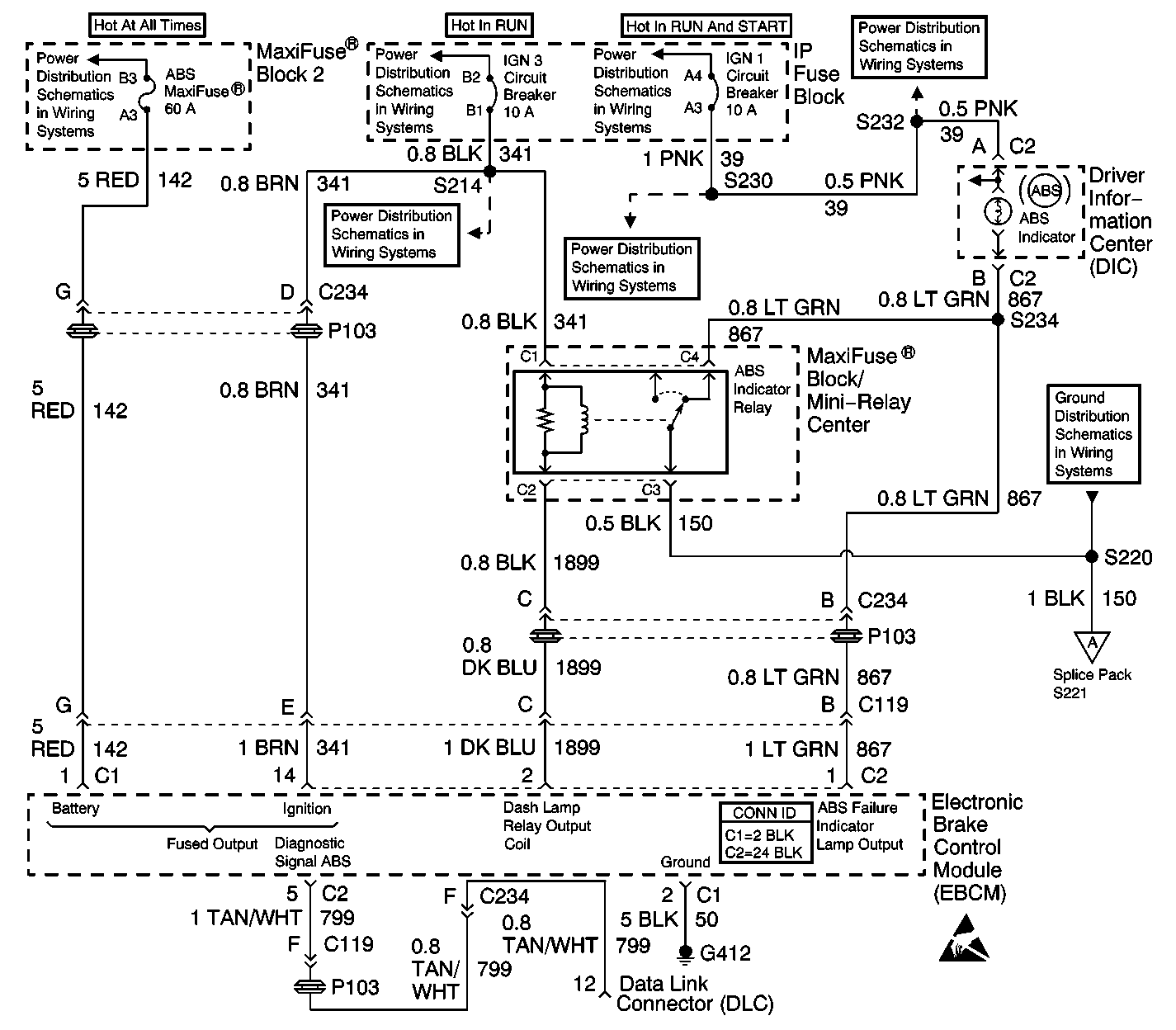
Circuit Description
The amber ABS indicator lamp operates in two modes; normal and backup. In the normal mode, ignition voltage is supplied to the ABS indicator lamp through the IGN SW fuse. The indicator is normally on unless the EBCM switches the indicator off, by activating the ABS indicator lamp relay. If the EBCM senses that a fault has occurred, it will set a DTC and light the ABS indicator lamp by supplying a ground to the ABS indicator lamp relay. In the backup mode, the ABS telltale relay circuit will ensure that the ABS indicator lamp is lit if the 24-way connector is disconnected or poorly seated, or if the EBCM has failed during normal operation. If either of these fault conditions occur, the ABS telltale relay will de-energize, which connects an alternate ground path to the ABS indicator lamp circuit through terminal C2 and terminal C1 of the ABS indicator relay.
Conditions for Setting the DTC
| • | High voltage is present on the ABS indicator lamp control circuit when low voltage is expected (lamp is turned on). |
| • | Anything that keeps the ABS indicator lamp circuit high when the lamp is expected to be on. |
Action Taken When the DTC Sets
The ABS is not disabled.
Conditions for Clearing the DTC
| • | Repair the conditions responsible for setting the DTC. |
| • | Use the Scan Tool Clear DTCs function. |
Diagnostic Aids
DTC C0286 typically sets because of a shorted ABS indicator lamp. Yet DTC C0286 can also set because of a short to voltage in the wiring between the ABS indicator lamp and the EBCM.
Test Description
The numbers below refer to the steps in the diagnostic table:
-
This step checks for normal operation of the ABS indicator lamp.
-
This step turns off the ABS indicator lamp with a J 36169-A .
Step | Action | Value(s) | Yes | No |
|---|---|---|---|---|
1 | Was the Diagnostic System Check performed? | -- | Go to Step 2 | |
| -- | Go to Step 5 | Go to Step 3 | |
Does the ABS indicator lamp turn off? | -- | Go to Step 5 | Go to Step 4 | |
4 |
Is the voltage equal to or greater than the specified value? | 10 V | Go to Step 7 | Go to Step 8 |
5 |
Does DTC C0286 set as a current DTC? | -- | Go to Step 6 | Go to Diagnostic Aids |
6 | Replace the EBCM. Refer to Electronic Brake Control Module Replacement . Is repair complete? | -- | -- | |
7 | Repair a short to voltage in CKT 1899. Refer to Wiring Repairs in Wiring Systems. Is the repair complete? | -- | -- | |
8 | Replace the ABS indicator relay. Is the repair complete? | -- | -- |
